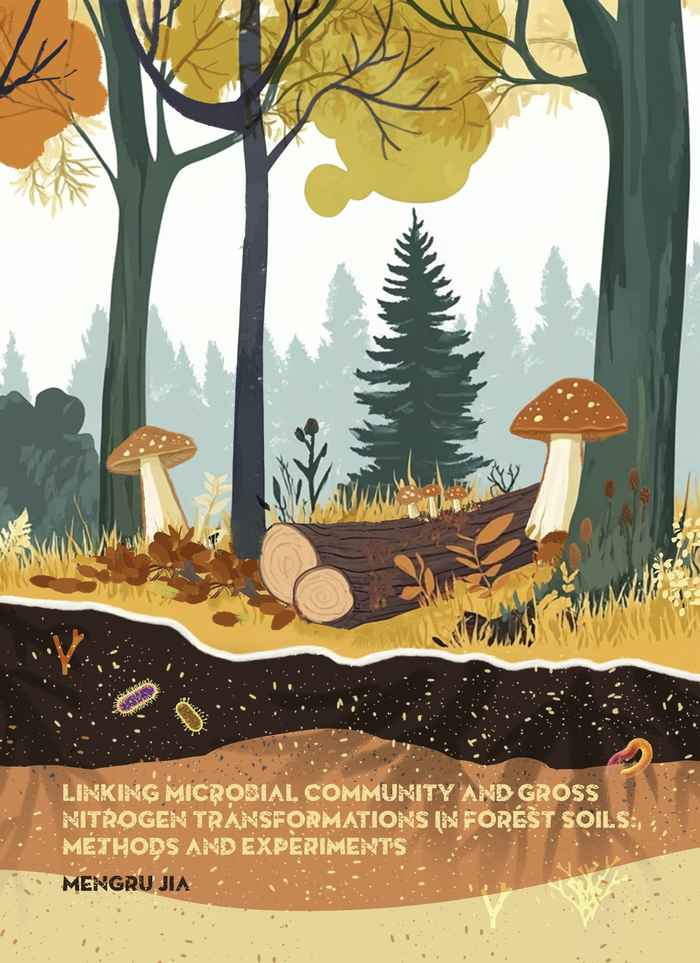PhD defence ceremony by Mengru Jia
- Date
- 30 October 2025
- Time
- 13:00
- Location
- Agnietenkapel

Gross nitrogen (N) transformations in forest soils underpin ecosystem productivity and regulate the risk of N loss. Soil biota, particularly microbes, drive these key processes, while climatic and soil-related factors regulate microbial communities and thereby shape the rates and interrelationships of gross N transformations. In recent decades, major advances in understanding the soil N cycle have been achieved through stable isotope techniques that quantify individual processes and genomic tools that characterise microbial communities.
This thesis advances a process-based understanding of soil N transformations in temperate forests—ecosystems that provide essential services yet are highly vulnerable to global change. Specifically, it investigates the regulatory factors of internal soil N transformations and explores how microbial communities mediate these processes. These objectives are addressed through an integrative approach that combines literature reviews on microbial N transformations and analytical methods with experimental studies in Dutch and Luxembourg forests. The findings contribute to integrating microbial dynamics into ecosystem-scale models of forest N cycling, thereby improving predictions of soil N dynamics under future environmental change.
for more information see : Linking microbial community and gross nitrogen transformations in forest soils: methods and experiments - University of Amsterdam
